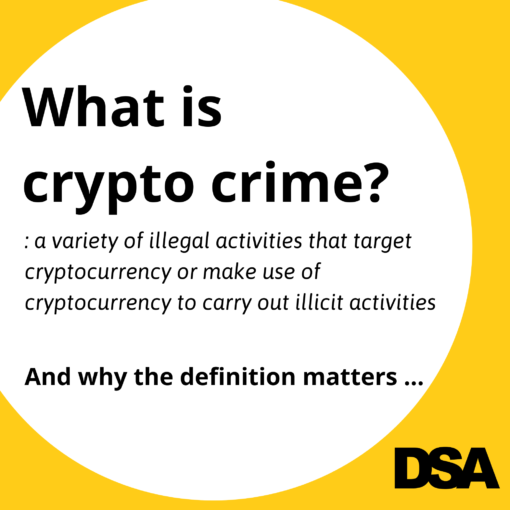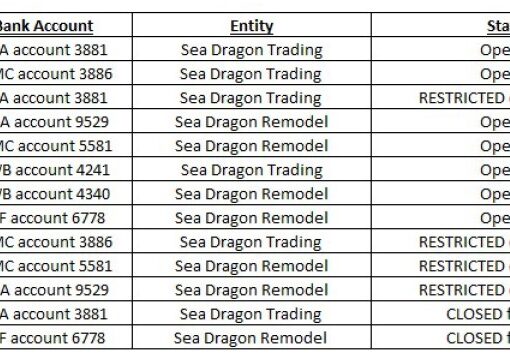One of the supposed benefits of cryptocurrency is the public nature of blockchains. Additionally, blockchain analytics is marketed as the way to make cryptocurrency safer.
Yet we keep being ‘surprised’ by sudden failures of major crypto companies like FTX, and collapses of crypto assets.
If the blockchain is public, why do we keep being surprised by crypto frauds & failures?
The problem leads back to the biggest myth in crypto:
All cryptocurrency transactions are recorded on the blockchain.
This myth has been repeated so many times it sounds like the truth.
Here’s a few examples:
- “all bitcoin transactions are recorded on the blockchain” – WSJ
- “all bitcoin transactions are recorded on the blockchain” – CNBC
- “every bitcoin transaction is broadcast on to the network” – Bloomberg
This misunderstanding is also echoed by regulators and government officials.
“With Bitcoin, for example, anyone can see any Bitcoin transaction since the inception of that cryptocurrency, either by downloading a copy of the blockchain through the network itself or by using a publicly available blockchain explorer.”
– Using Blockchain Analysis From Investigation to Trial May 2021.
Most Transactions are Off Chain
Judge Faruqui rightly noted “cryptocurrency transactions that occur on the blockchain are, by design, publicly available.”
But what about the crypto transactions that occur off the blockchain? The off-chain transactions escape blockchain analytics.
Most cryptocurrency transactions occur within crypto exchanges. Crypto exchanges internally match buyers and sellers. Exchanges also act as a market-makers, stepping in as a counterparty when a buyer/seller is unavailable.
Internal transactions are estimated to be ten times the volume of transactions executed on the blockchain:
On-chain transactions, however, constitute only a small share of the universe of all Bitcoin trades, most of which are “off-chain” utilizing some form of exchange, some heavily regulated, some not so much.
– Decrypting New Age International Capital Flows
Internal Ledgers at Crypto Exchanges. What could go wrong?
Crypto exchange internal transactions are not recorded on the blockchain. Instead, these off-chain transactions are recorded on the exchange’s internal ledger.
Crypto exchanges’ internal ledgers have been ‘sloppy’ or outright fraudulent from the very beginning. Mt. Gox, one of the first cryptocurrency exchanges, allegedly failed to accurately record internal customers transactions, and stole crypto from customers. Similarly, QuadrigaCX and Cryptsy (or their founders) allegedly stole customer funds.
Former FTX CEO, Sam Bankman-Fried tweeted:
poor internal labeling of bank-related accounts meant that I was substantially off on my sense of users’ margin. I thought it was way lower.
SBF on Twitter
FTX also faces allegations that it tapped into customer accounts to fund risky bets placed by an affiliated company, contrary to its customer account agreements.

What else could go wrong? Inflating Native Tokens.
Crypto exchanges have also been found to engage in or encourage wash trading. The exchanges benefit in multiple ways from wash trading.
First, wash trading creates the appearance of more activity and liquidity which can attract new users to the exchange. Second, the exchange earns fees from customers engaged in wash trading. Finally, if the exchange issues native tokens or is an early investor in a new cryptocurrency, they can manipulate the value of the token to improve their own balance sheet.
Some of the recently imploded crypto companies allegedly inflated native tokens.
If you run a centralized exchange, only you see what happens internally.
If you want to run a big fraud, run it within an crypto exchange. Even better, run an exchange.
Not the exactly the Eye of Sauron
Blockchain analytic companies do not have much insight into what happens within exchanges. As the name implies, these companies analyze what happens on the blockchain.
This is why after crypto companies implode from fraud or incompetence an examiner is often appointed and bankruptcy proceedings take years.
No one says, “Here’s the blockchain analytics. The job is done. Now, let’s have lunch.”
Want more Cryptocurrency Insights?
What can we learn from CFPB Consumer Cryptocurrency Complaints?
3 Misconceptions about Cryptocurrency Crime Estimates?
2021 Cryptocurrency Exchange Suspicious Activity Reports
Dynamic Securities Analytics, Inc. provides litigation consulting to help clients successfully navigate disputes involving securities, cryptocurrency, and money laundering.




